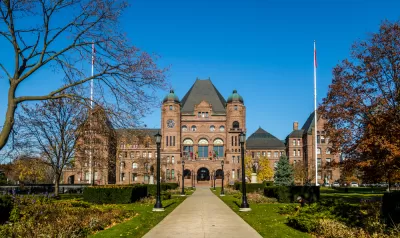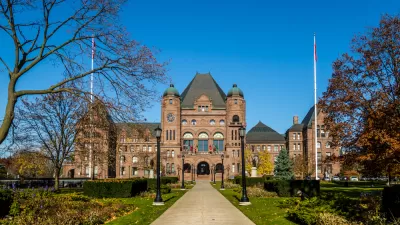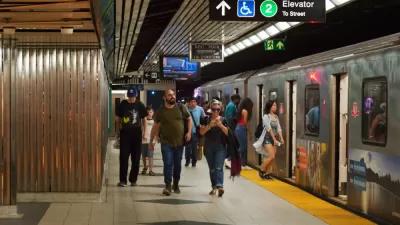The fallout from Ontario Premier Doug Ford's decision to pull the province from the Western Climate Initiative, a cap-and-trade program linked with Quebec and California.

Since his election in June, Ontario Premier Doug Ford has promised to end the province's participation in a cap-and-trade agreement with Quebec and California called the Western Climate Initiative.
The provincial government's financial accountability officer responded to that proposal recently with a study that estimates the cost of ending the deal to reach $3 billion over four years, according to an article by Robert Benzie.
"The province’s budget balance worsens because the loss of cap-and-trade revenue from ending the auction of emission allowances is greater than the savings achieved from cancelling cap-and-trade-related spending programs," according to a statement by Ontario Financial Accountability Officer Peter Weltman.
Ford announced in July that the government would rescind the 4.3 cents a litre addition to gas prices included in Ontario's commitment to the cap-and-trade scheme. California and Quebec closed the market to Ontario in June. More recently, Ford promised 'an orderly wind-down of all programs funded out of cap-and-trade carbon tax revenues,' after describing cap-and-trade programs as a "slush fund" and a "cash grab."
The end of the gas surcharge will also mean the end to the "$1.9 billion in annual programs bankrolled by cap-and-trade revenues," reports Benzie, "including subsidies for retrofitting windows and energy-efficient insulation to help consumers reduce hydro and natural gas bills."
Moreover, the province had been exempted from Canadian Prime Minister Justin Trudeau's federal cap-and-trade program. Now Ontario will be forced into that program, unless it wins an expected lawsuit in court.
FULL STORY: Premier Doug Ford’s cap-and-trade move will cost treasury $3B over four years

Planetizen Federal Action Tracker
A weekly monitor of how Trump’s orders and actions are impacting planners and planning in America.

Restaurant Patios Were a Pandemic Win — Why Were They so Hard to Keep?
Social distancing requirements and changes in travel patterns prompted cities to pilot new uses for street and sidewalk space. Then it got complicated.

Map: Where Senate Republicans Want to Sell Your Public Lands
For public land advocates, the Senate Republicans’ proposal to sell millions of acres of public land in the West is “the biggest fight of their careers.”

Maui's Vacation Rental Debate Turns Ugly
Verbal attacks, misinformation campaigns and fistfights plague a high-stakes debate to convert thousands of vacation rentals into long-term housing.

San Francisco Suspends Traffic Calming Amidst Record Deaths
Citing “a challenging fiscal landscape,” the city will cease the program on the heels of 42 traffic deaths, including 24 pedestrians.

California Homeless Arrests, Citations Spike After Ruling
An investigation reveals that anti-homeless actions increased up to 500% after Grants Pass v. Johnson — even in cities claiming no policy change.
Urban Design for Planners 1: Software Tools
This six-course series explores essential urban design concepts using open source software and equips planners with the tools they need to participate fully in the urban design process.
Planning for Universal Design
Learn the tools for implementing Universal Design in planning regulations.
Heyer Gruel & Associates PA
JM Goldson LLC
Custer County Colorado
City of Camden Redevelopment Agency
City of Astoria
Transportation Research & Education Center (TREC) at Portland State University
Camden Redevelopment Agency
City of Claremont
Municipality of Princeton (NJ)




























